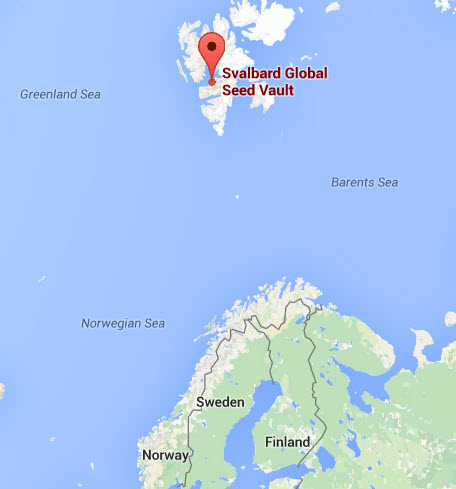The upgrades include a service building for refrigeration units
By Diego Flammini
News Reporter
Farms.com
Even a remote “doomsday vault” in Norway needs to be upgraded.
The Norwegian government announced an investment of US$13 million into the Svalbard Global Seed Vault in February. The vault is home to more than 1 million seed samples, according to the country’s agriculture ministry.
The vault is located about 620 miles from the North Pole and is buried in the side of a mountain. In the case of a global catastrophe, seeds would be withdrawn to replenish crops. The vault can hold up to 2.5 billion seeds and the seeds are kept at -18 C (-0.4 F) for optimal storage.
The upgrades include “the construction of a new concrete-built access tunnel, as well as a service building to house emergency power and refrigerating units and other electrical equipment that emits heat through the tunnel,” Norway’s federal government said in a Feb. 23 release.
The need for improvements come after parts of the vault flooded in May due to melting permafrost. None of the seeds were damaged during the flood.
Over 20 countries have made recent deposits to the seed vault.
Gene banks from Canada, the United States, Australia all shipped seed to the Svalbard Global Seed Vault in late February.
The seed shipments “confirm the important role of the seed vault as a worldwide insurance for food supply for future generations and an ever-growing population,” Jon Georg Dale, Norway’s Minister of Agriculture and Food, said in a Feb. 26 statement.

Only one country has made a withdrawal from the seed vault.
In 2015, Syria requested seeds from the vault to help its ag sector recover after continued fighting. Syria returned 50,000 seeds to the vault in February 2017.
The conflict in Syria caused an estimated US$16 billion in damages to agriculture, according to an April 2017 report by the Food and Agriculture Organization of the United Nations.